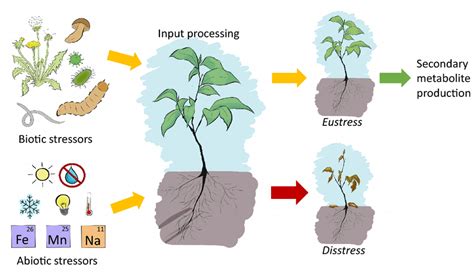Bacteria may be tiny, but when they team up and form biofilms, they can wreak havoc. Picture this: a slimy layer of microorganisms coating surfaces like river rocks or your teeth, creating a shield that makes them resistant to antibiotics and cleaning agents. These biofilms not only pose a threat in medical settings on devices such as catheters and implants but also cause issues in industrial environments by clogging pipes and contaminating equipment.
In the battle against these troublesome biofilms, researchers at UC Riverside have made an exciting discovery. They found that plants produce a chemical called MEcPP when under stress, which surprisingly disrupts the formation of biofilms by interfering with bacteria’s ability to attach to surfaces. This revelation opens new doors in healthcare for combating infections and addressing corrosion problems in various industries.
“In simple terms, biofilms are communities of microorganisms…that stick together.”
Biofilms are like mini-cities where bacteria establish their strongholds using hair-like structures called fimbriae to grip onto surfaces before secreting a protective matrix around themselves. However, without these fimbriae, the initial phase of biofilm construction cannot begin – this is where MEcPP comes into play by essentially disarming bacteria from setting up their fortresses.
“By preventing the early stages of biofilm development…”
Through extensive genetic screenings, the research team pinpointed a crucial gene called fimE that acts as an “off switch” for fimbriae production. MEcPP boosts this gene’s activity, leading to decreased fimbriae production and ultimately hindering biofilm formation. This groundbreaking finding could revolutionize how industries approach biofilm prevention across various sectors.
“From cleaner water systems to better dental care products…”
While traditionally managing biofilms has relied on harsh chemicals or costly treatments with limited effectiveness over time due to bacterial adaptation, this natural defense mechanism inspired by plant biology offers sustainable solutions with wide-ranging applications. The unexpected link between plant signaling molecules under stress and combating bacterial threats highlights the intricate interconnectedness of nature’s mechanisms.
“This study is a testament to the unexpected connections between plant biology…”
As we delve deeper into understanding how organisms interact and adapt in their environments, we uncover hidden gems like MEcPP that hold immense potential for addressing complex challenges posed by microbial communities. With further exploration and application of such discoveries, we may find ourselves better equipped to navigate the intricate world of microbiology while drawing inspiration from nature’s own defenses against harmful invaders.

